One silver lining of the quarantine is that you finally get around to doing the things you've been wanting to do for a while. For me, it's writing.
This year, I had the chance to go to the 13th annual Jaipur Literature Festival with a dear college friend. It's the biggest free literature festival in the world and set in a Diggi palace in Jaipur, India. Instead of traditional conferences, I'm trying to go to an event every year that piques my interest and exposes me to a different industry (last year in January was the Sundance Film Festival).
Having a friend along was also delightful as she had gone to the literature festival last year so she knew how to navigate the space. It was spectacularly decorated and colorful. Essentially there are lectures and panels throughout the 5-day fair on a range of topics. There are also vendors selling their artisan work as well as books of the authors available for purchase. Also if you purchase the delegate package (not worth it with few exceptions), you can actually hang out where the authors sit (and thus stalk them). The food was incredible and the entire event was very well organized.
Last year, the theme was around biology, genetics and the future of medicine, whilst this year it was around politics and history. There were such a range of attendees from people overseas (mostly the UK), to children on school trips (I would have shit my pants if I ever got to go something like this in grade school... yes, I'm a nerd). I learned so much about so many niche things that I wanted to capture and share some of it.
The Mythology of the Millennial
This was the first session that I went to and they talked about how traditional Indian gods are recreated in present literature. Meenakshi Reddy Madhavan presented the central question: are we copying the West in redesigning the gods in the image of western superheroes? It was an eye-opening discussion as I'm someone who is very much in love with Sanjay's Super Team, but made me question what western ideal I was revering. They went on to talk about storytelling and how one story can be told from very different viewpoints (myths are told differently in different parts of India). The best characters are the ones that have gray shades, but we've really idolized this Western concept of good vs evil. Anand Neelakantan in particular talked about how when we look at mythology vs history, stories are just interpreted according to the needs at the time.
Darjeeling Express of Food and Friendship
Full confession: definitely cried during this talk within the first 5 minutes. Asma Khan is just a powerhouse of compassion and confidence and charisma. Her sentiments rung a bell in me I didn’t know I had. She talked about how food is a source of comfort in an immigrant family. When she got married and moved to the UK, she cycled past a house and started crying when she smelt the paratha being made and realized how isolated and lonely she felt. Although she had never really cooked before, she realized that food was the thing that was going to keep her grounded to her roots. She talked about the servant-wife complex of cookery whereby women are undervalued and only see the "joota" plates when they come back from the dining room because they don't even get to eat with their families (cause they're prepping hot food and cleaning). We've also created a division between "home cooking" and "restaurant cooking" and how we associate those with different genders. Once cooking has moved to the restaurant, there is masculinization of the profession so it's not looked down upon to be a male chef, but it is looked down upon to be a female homemaker.
Asma actually employs all women (who are not chefs) at her restaurant to prove the point that anyone can cook and that we should be able to see their faces and appreciate the people preparing food (there's an open kitchen in her restaurant). One her best quotes was "the dough I knead is unique because my fingerprints are unique". She has taken her home cooking (which started as clandestine group gatherings in her home) to her own restaurant (Darjeeling Express) for inspired Bengali and Mughlai food. After the talk, we bought her book and got a chance to chat with her during the signing. She was just so inspiring and captivating and urged me to continue my Diwali dinners each year regardless of where I am. I left that talk and signing filled with so much joy, really thinking about what my relationship with my culture and food is.
Plug here that her entire story is on Chef’s Table on Netflix, Season 6, Episode 3
She merchants buccaneers and gentlewomen: British women in India
In line with the historical political theme of the festival this year, this talk was lighthearted but eye-opening. Katie Hickman (author of the book), chronicled the lives of several British women through the course of colonial rule in India. She talked about how initially British women were barred from coming over because sailors considered women unlucky. With the rise of Evangelical Christianity, women started coming over with "the oriental gaze" (aka glorifying Indian culture and artifacts – one British woman became an Indian nun). One of her stories in particular talk about the Indian gaze on British women. British women packed loads of dresses and clothes (evening dress vs morning dress vs tea dress) because they didn't understand the tropical climate they were going to go into and really suffered. The salient question that was ringing through my head during this talk was around how white guilt really doesn't exist in India.
Letters to a Young Muslim
Another great talk by who we deemed the Arab George Clooney, Omar Ghobash. His book are essentially reflections of his life as a Muslim man. He spoke about how he is a proponent of turning the Muslim gaze inward (instead of asking each other if you've prayed or not). He talks about choosing your own ethical life and not finding the "true Islam" but being truer to the values to Islam. He went through his own personal crisis between choosing his mother and Islam. He chose his mother (which is quite Islamic), but made him really think about why those came to confront each other. His stance was that we can't use the West in the way we want until their values come through and was flabbergasted when he read stuff like "we don't need Muslims to invent technology. We invented the West for that." As a moderate Emirati diplomat, he is of the firm belief that any dogma that doesn't question itself will die ("how documentation creates history but the sources of that documentation can be questionable").
Howdy America
As an Indian American, I went to this session curious to hear Indian perspectives on America. With the changing climate because of COVID-19, it's fair to say that the world power balance has clearly changed since this panel.
With China as a powerhouse for manufacturing, there was a clear fear that India was going to fall behind "in the eyes of America" with its declining economy. India was described as "a lady that likes to be wooded but is afraid of commitment", calling for more differentiation and space between itself and China, Russia, and Pakistan. When comparing India to Pakistan, China becomes the diplomatic power broker, supporting Pakistan, leaving India in an uncomfortable position. There was also talk of how the US has supported Pakistan more than India in the past. India's association with Russia (aligned from 1960-1990) is also of concern with the current US president and international perception. The question came down to: how much of India's past is influential of its future? India constantly tries to stand non-aligned. One thing was clear though: India's ties with America determines its pecking order in the world. India and America have quite a few similarities from being democracies (called "the icing on the cake") to currently have a very polarized political climate. But, things that we had thought were resolved with the US are now up for discussion with Trump.
They also talked quite a bit about Indian Americans and the mobilization of the India diaspora for the Indian regime for Trump (aka Indians supporting Trump and Modi despite their best interests potentially). They mentioned how these Indians are mainly higher caste and so politically also fall into Modi's support system. While we would expect this voter base to be moderate to democratic (to support minority rights in the US and methodological stuff in India) as immigrants, they use the Republican Party to get forward (which oddly is almost more Indian?).
Being various: on literary diversity
The last talk of the conference was about literary diversity and really what immigration means in a lot of ways. The key question that kept coming up was what does decolonization really mean? And this was a question that I heard throughout the conference as a key thread. The panel talked about how calling someone a white male writer is offensive but not when you're saying you're a multicultural female writer (vs simply saying writers). They also talked about how human migration feels so final but we're so accepting of migratory birds. People weaponize the fact that you haven’t owned land to say you are from somewhere else. Sunny Singh mentioned how home is a place within, it's a place to retreat but a place you can be found (really resonated me after I had written about what home is). They also talked about regional tribes of India (Adivasis) and how they don't have enough representation and are overlooked by the government so often. We keep trying to enforce some kind of standard (like a national language), but 65% of India doesn't even speak Hindi. We have to learn how to be more accepting of all of these people to create a less divided nation.
There were a few other talks I went to but pulled out some quotes that captured the essence:
- On speculative futures: "People easier to control once you take away their history."
- On climate change: "The poorest countries are the ones contributing the least to climate change."
- On demonizing Mughals / Muslims: "Matrimonial alliances with Rajputs were common to Mughals. It's only the West that bastardized that for the narrative."



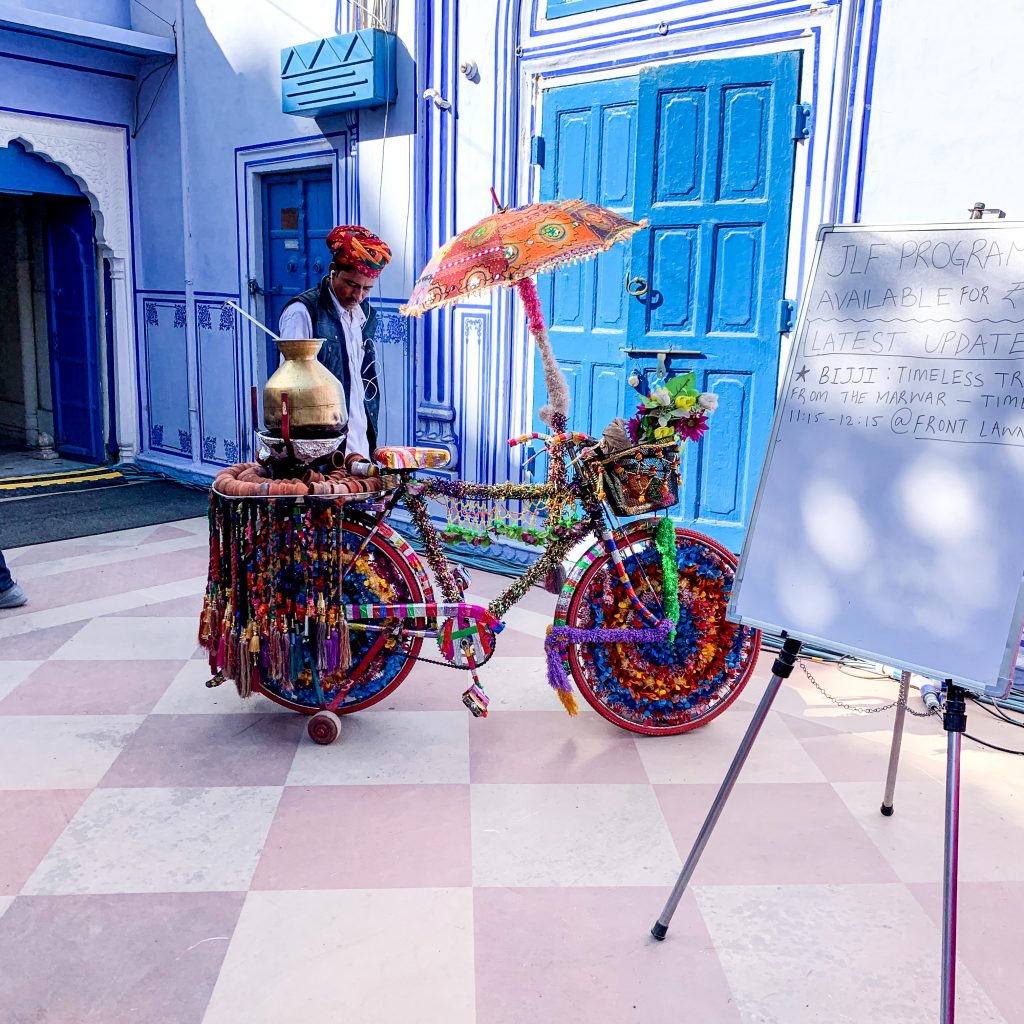


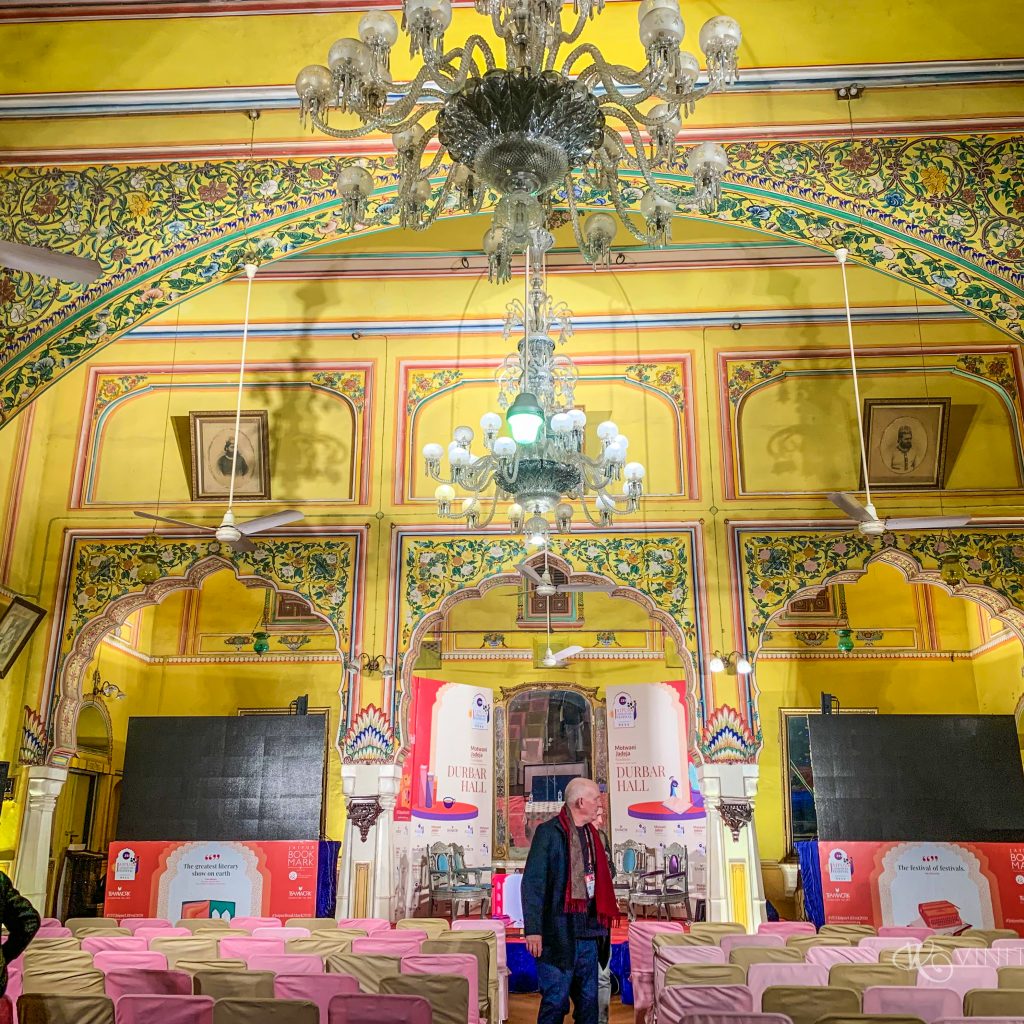
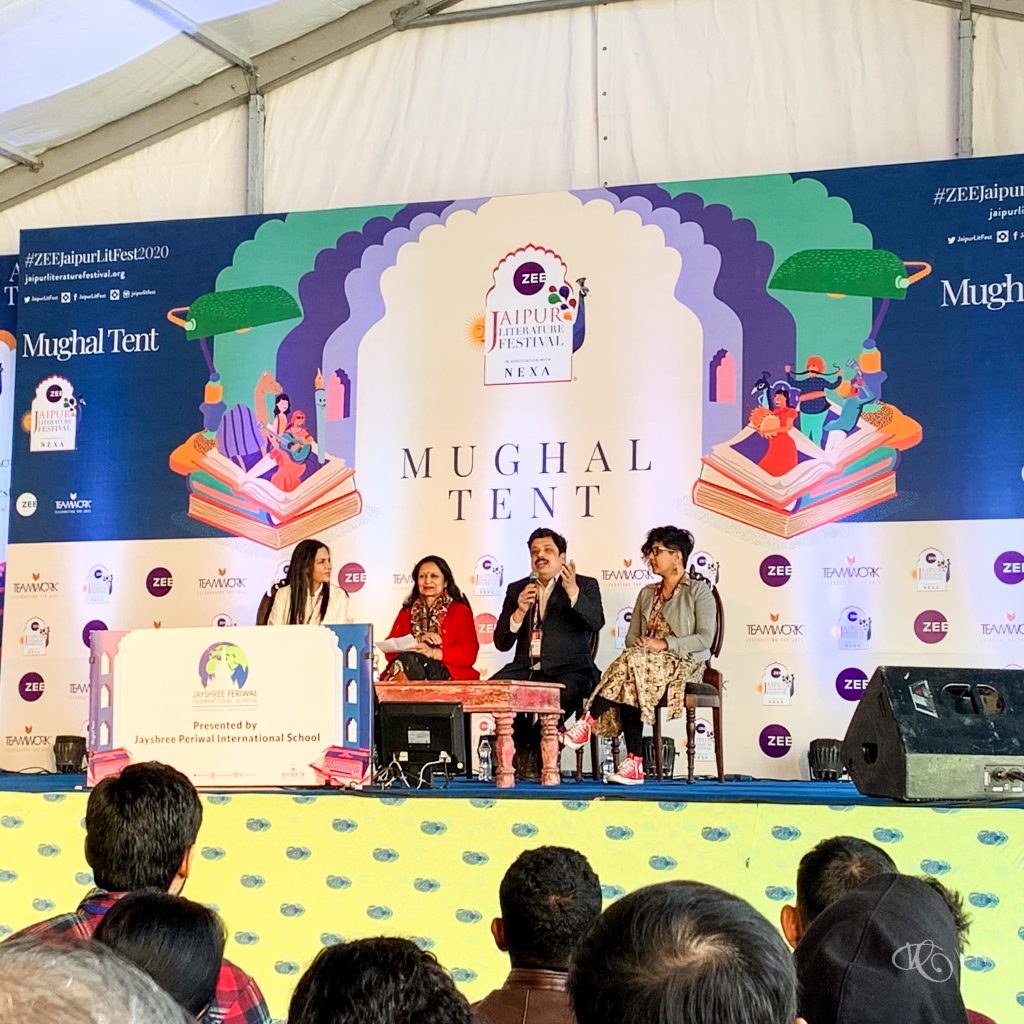


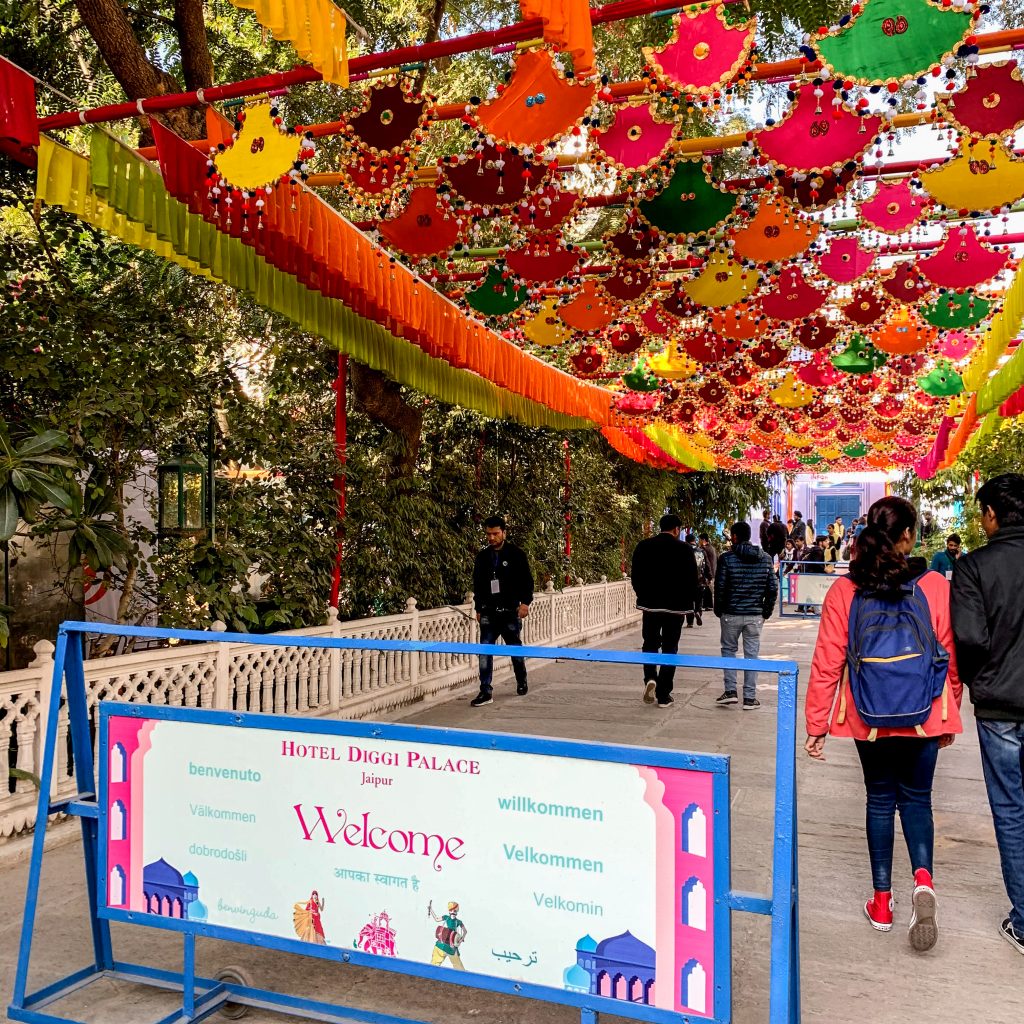

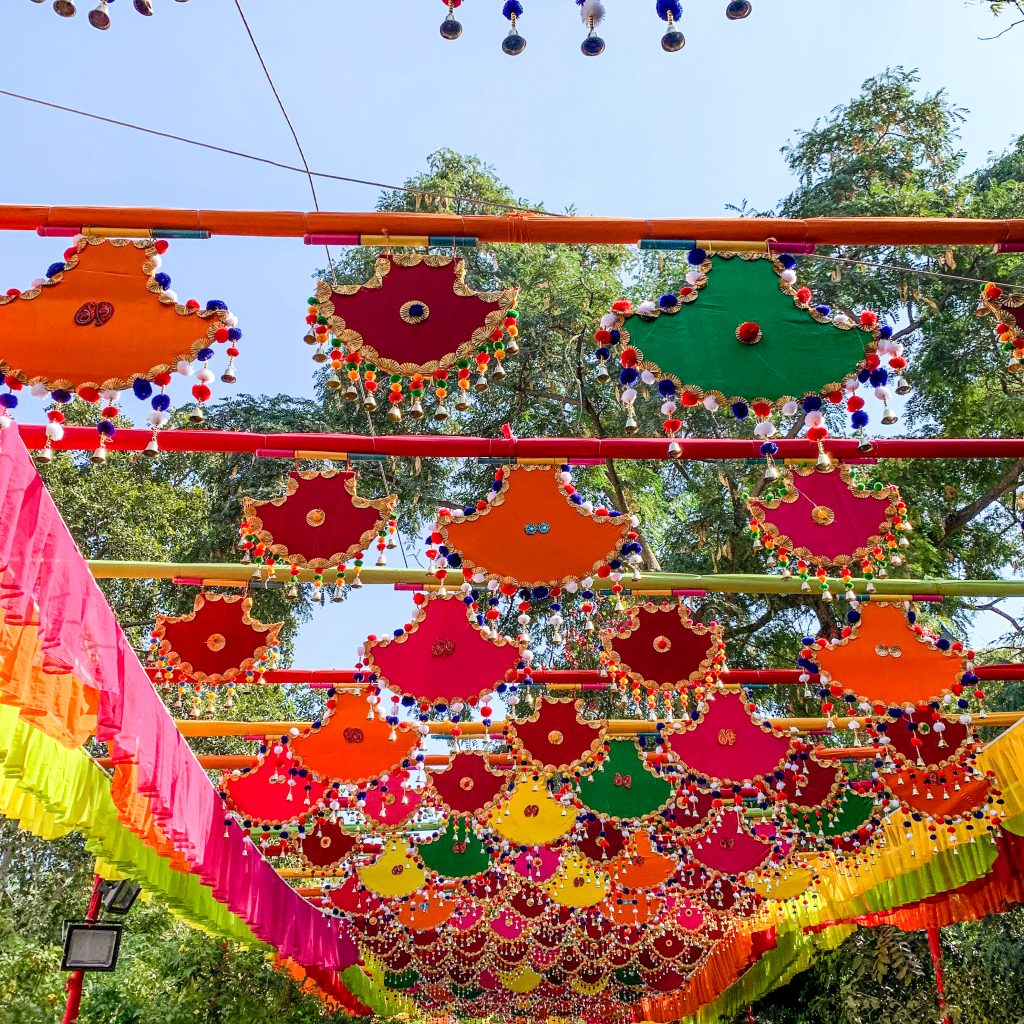

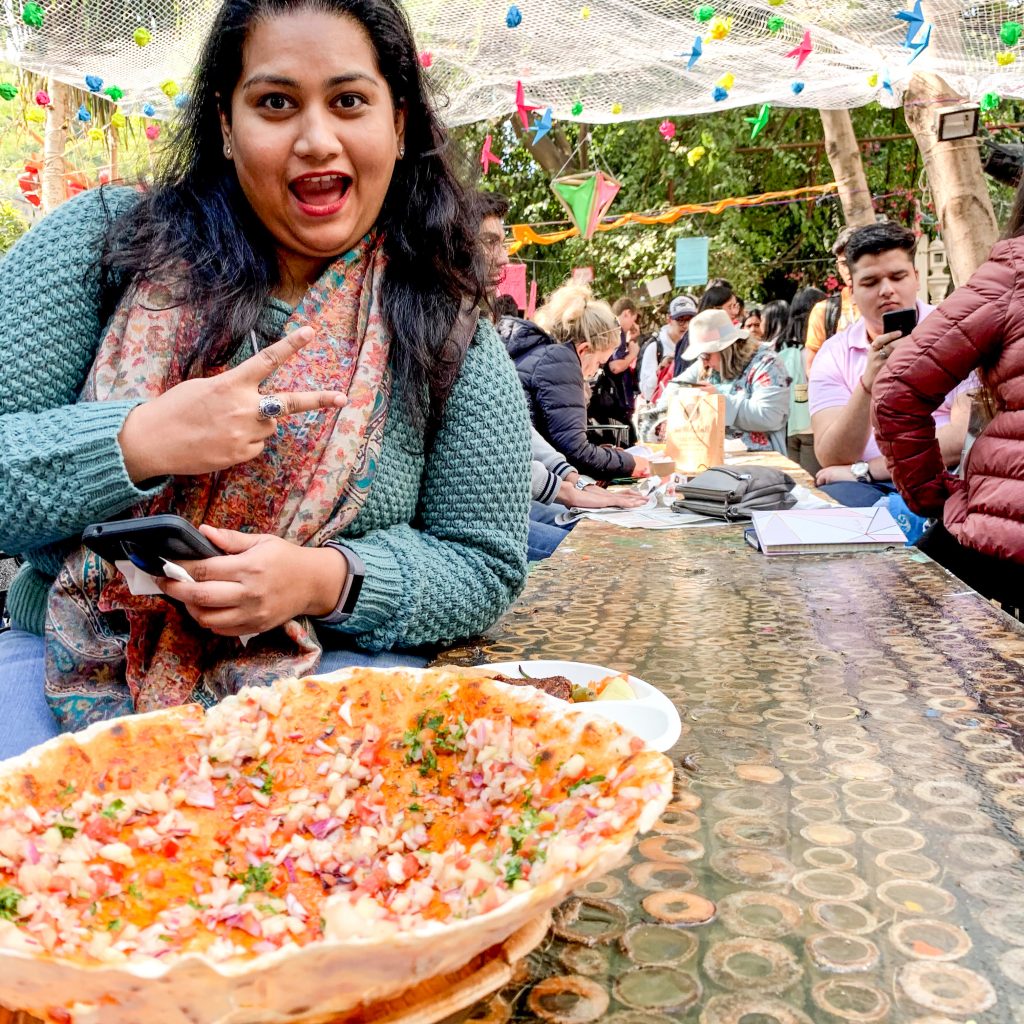


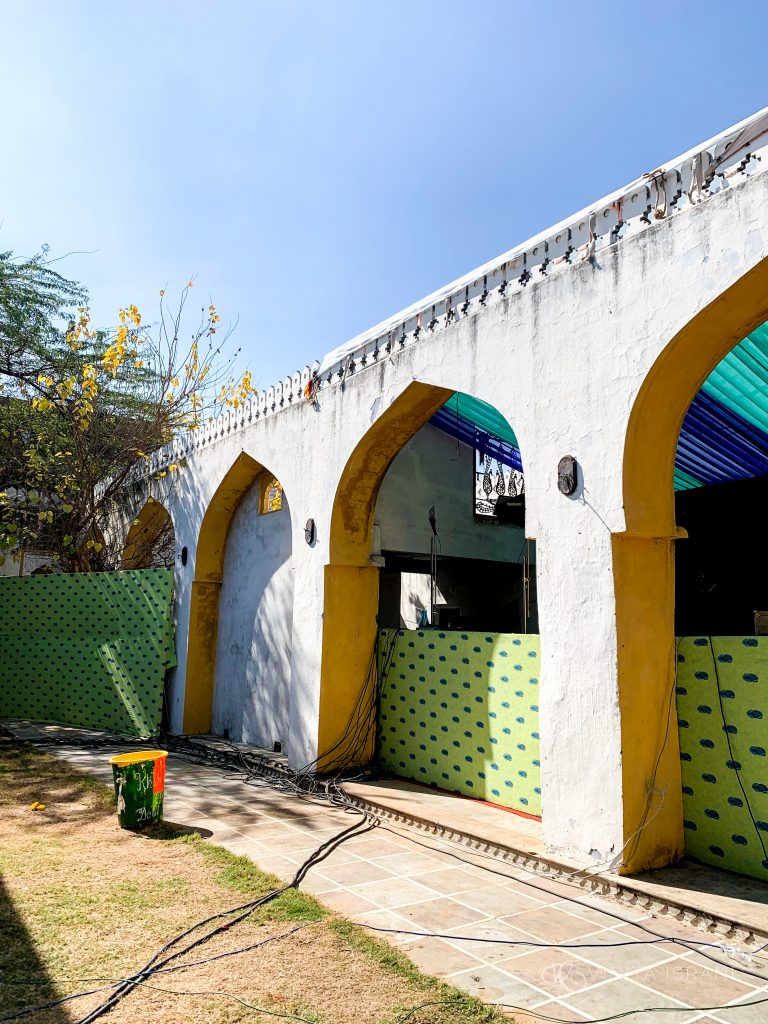
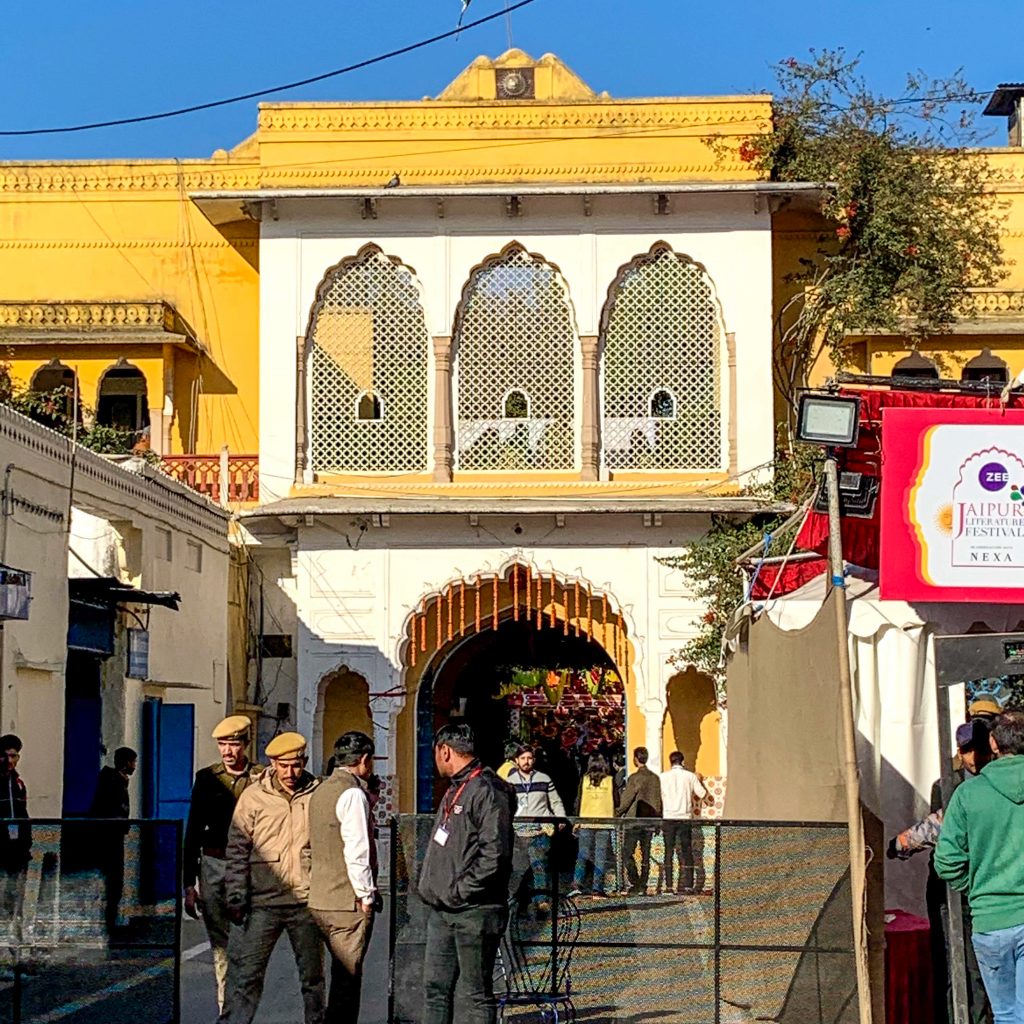
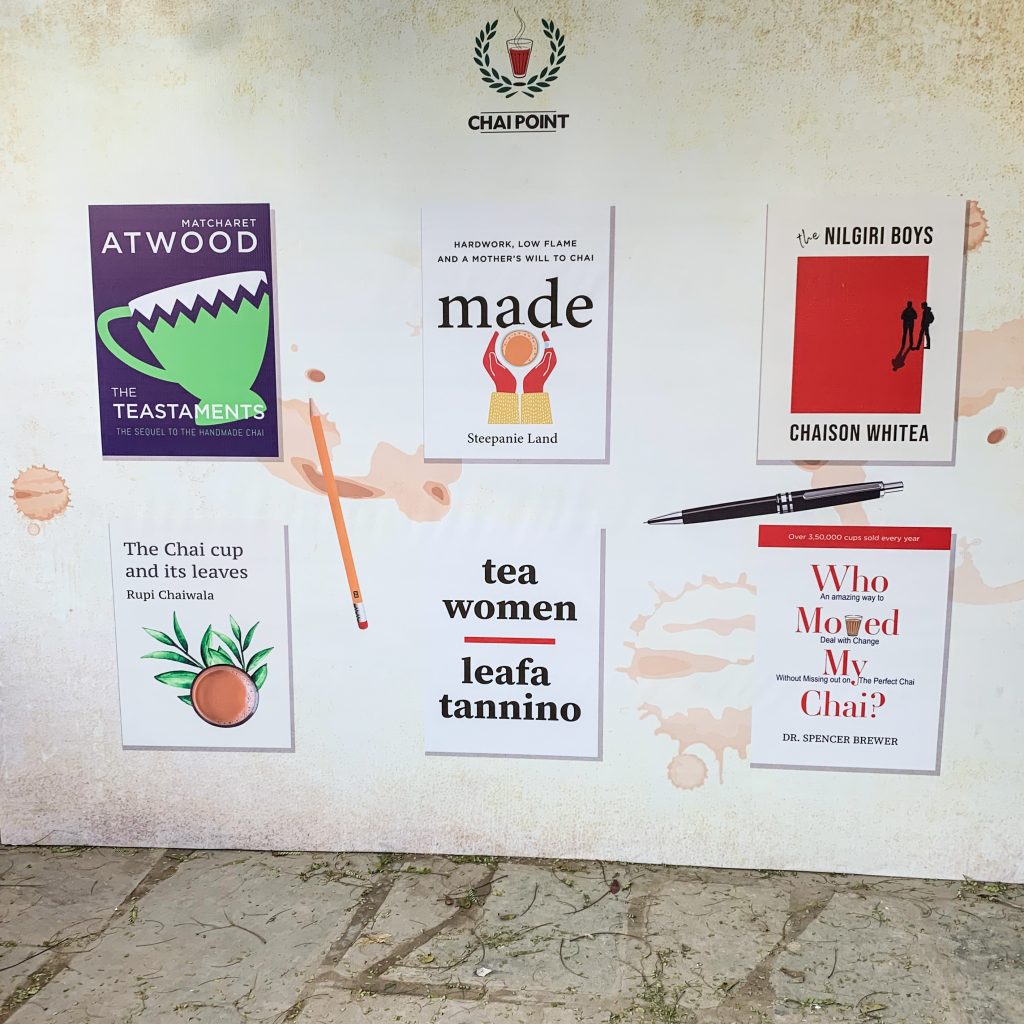
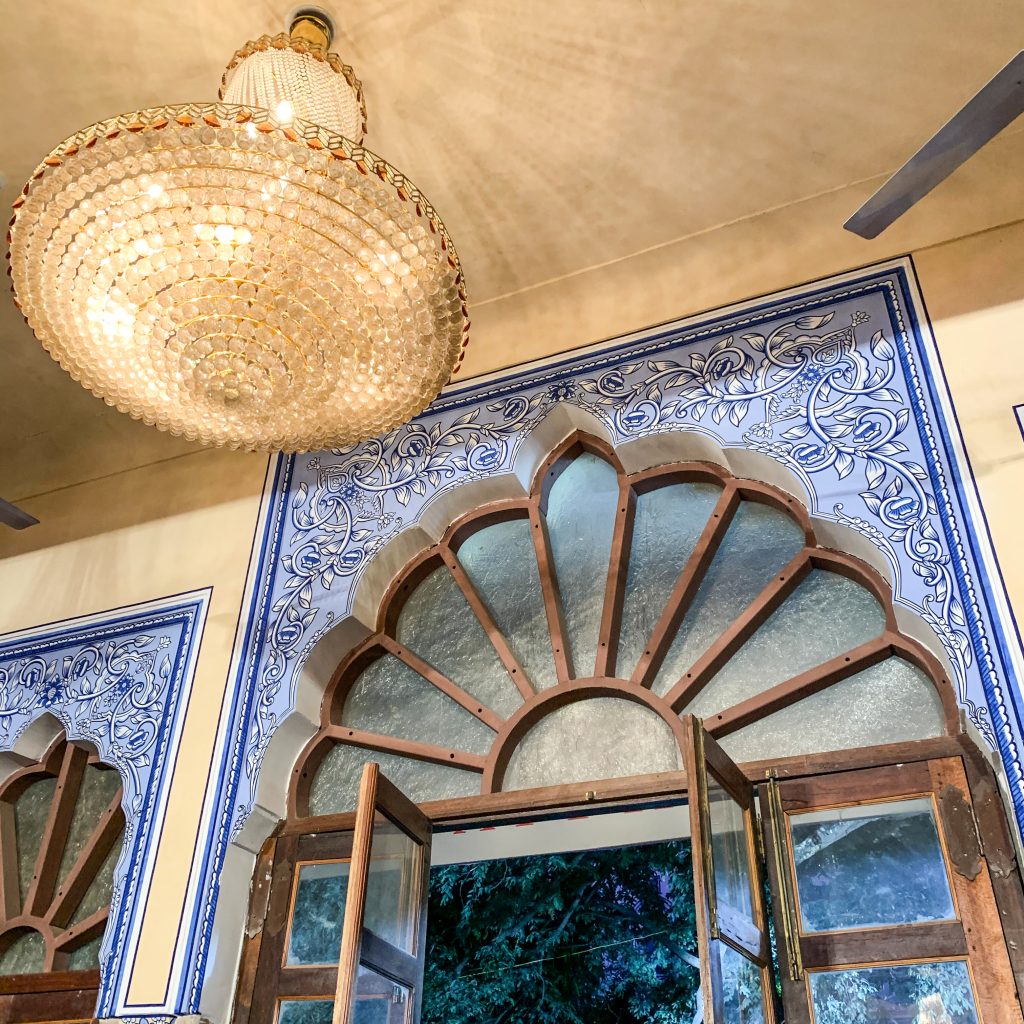
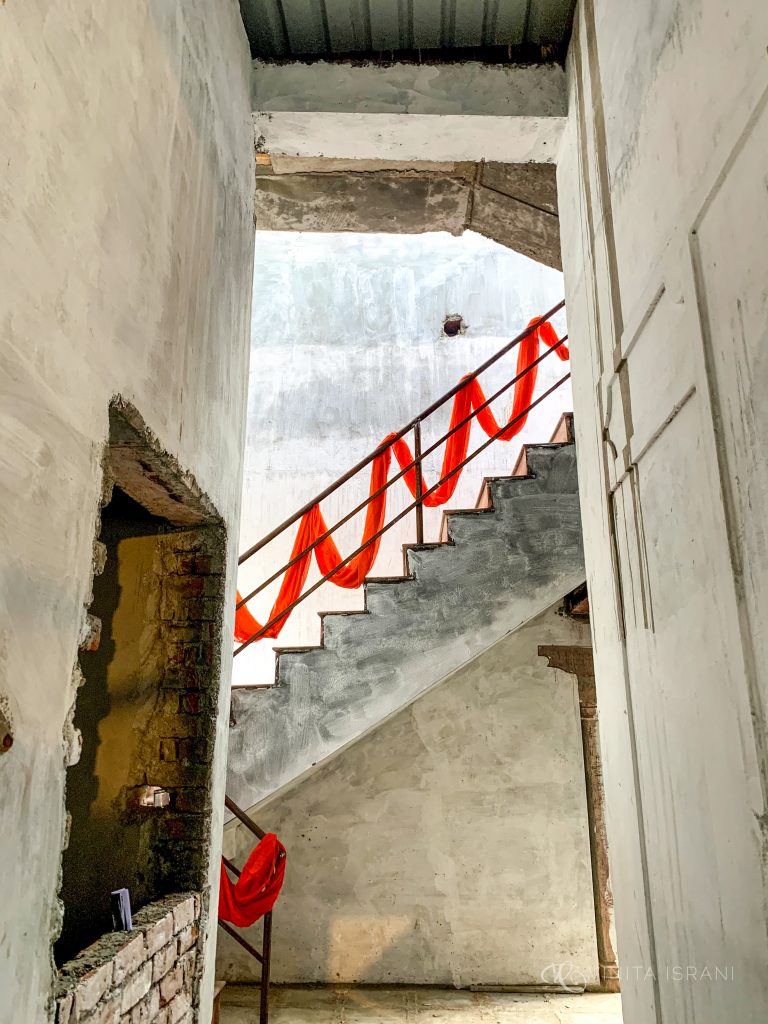

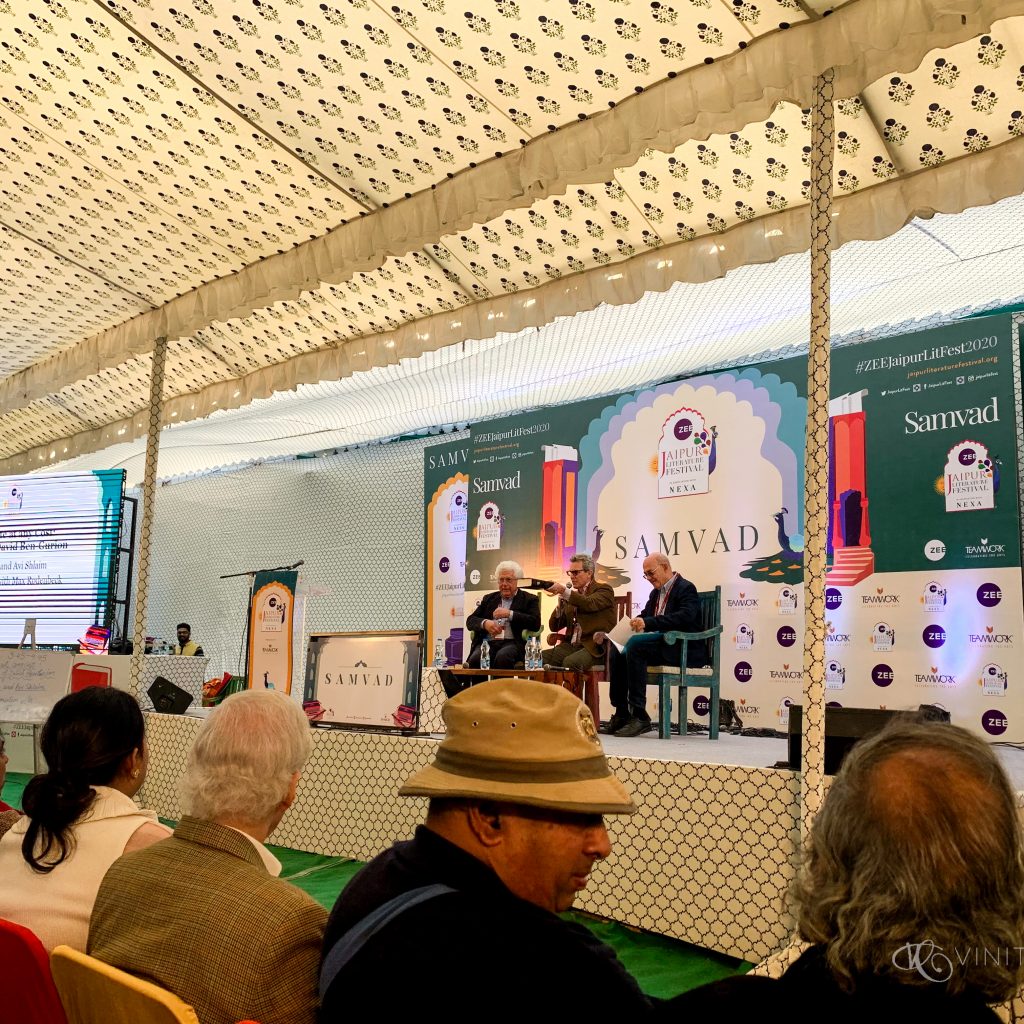

No Comments.